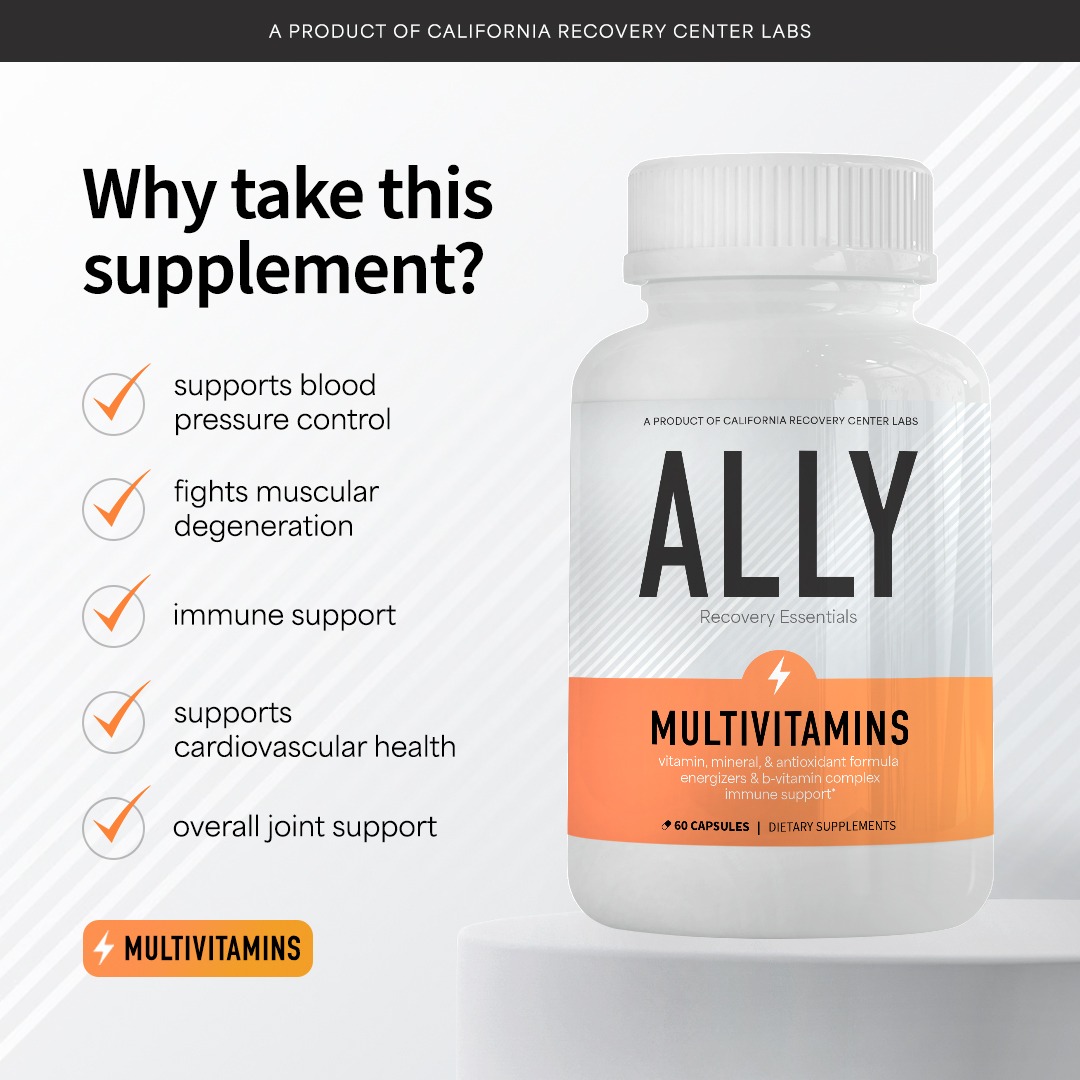When people think about addiction recovery, they focus more on therapy and support groups. While these are important, proper nutrition can also contribute to transitioning into a new life without substance abuse. There are vitamins and minerals that can speed up recovery and help with vitamin deficiency, which is one of the health issues caused by addiction. In this blog post, we’ll explore how integrating multivitamins into your daily routine is beneficial to your recovery journey.
Link Between Addiction and Nutrition
During an active addiction, proper diet and nutrition are usually not the priorities. As the addiction progresses, the individual starts neglecting nutrients, which then interferes with the bodily functions and overall well-being. When someone has poor nutrition, it can impair their immune system and cognitive function, and cause mood swings, all of which can impede their recovery process.
When you’re in the early stages of recovery, your body undergoes many changes as you adjust to your new life. This highlights the need for your body to have adequate time and resources to assist in the process.
Multivitamins: A Foundation for Recovery
Addiction causes detrimental effects in your body, depleting essential nutrients and resulting in impaired health. So, replenishing nutrient stores depleted by substance misuse is important. Incorporating multivitamins into your routine is one way to replenish these nutrient stores and aid in the recovery process.
Helpful Vitamins and Minerals for Addiction Recovery
Let’s look at some of the vitamins and minerals that can help improve one’s overall health during recovery:
- Vitamin D. Vitamin D deficiency is a common result of substance abuse and addiction. Supplementation with vitamin D may aid in bone strength, immune function, and mental well-being.
- Vitamin C. This is an antioxidant that helps in recovery from opiate and alcohol abuse. It also helps build a stronger immune system, which aids in recovery process.
- Magnesium/Calcium. When people are in recovery, they experience mental and physical tension. Magnesium can help with cramps and provide muscle relief, whereas calcium can help with anxiety.
- Vitamin B. If you’re recovering from addiction, levels of vitamin B in your body may be deficient. Vitamin B supplementation aids in carbohydrate, protein, and fat metabolism, and brain function. Studies show that vitamin B can help reduce the risk of relapse and improve cognitive function in addiction recovery.
Incorporating Multivitamins into Your Journey
You might feel a little confused about incorporating multivitamins into your daily routine. So, it is best to be consistent to reap their benefits. Here are some tips to help you be consistent:
- Choose a high-quality multivitamin. Look for a multivitamin supplement that is specifically tailored to cater to your needs while you’re in recovery. One that is packed with therapeutic doses of vitamins and minerals.
- Take your multivitamin with meals. It is always better to take your multivitamin with meals to enhance nutrient absorption and avoid having an upset stomach.
- Set a reminder. Developing a routine for taking multivitamins may be difficult. It’s best to set a reminder on your phone or incorporate it into a daily habit, such as during meals or before bedtime.
- Monitor your progress. Pay attention to how you feel when taking multivitamins. Keep track of the changes in your mood, energy levels, and overall health.
Addiction recovery involves more than just cutting off the “bad” habits and preventing relapse. It also includes the “good” changes one can make to boost their recovery process. Nutrition becomes difficult to manage for those with active addiction, causing nutritional deficiencies. By incorporating multivitamins into your daily routine, these deficits can be restored. Remember to consult a healthcare professional first before taking multivitamin supplements. Through a holistic approach that includes therapy, physical activity, support groups, and proper nutrition, you can increase your chances of recovery from substance abuse.


